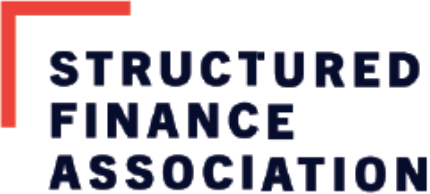The SEC’s re-proposed Prohibition Against Conflicts of Interests in Certain Securitizations should serve investors and the wider financial markets.
WASHINGTON, March 27, 2023 – The Structured Finance Association (SFA) has sent a letter to the Securities and Exchange Commission urging the need to protect investors while maintaining the strengths of our financial markets when the Commission considers its re-proposed rule on the Prohibition Against Conflicts of Interests in Certain Securitizations. As currently written, SFA and its members believe the sweeping approach taken in the re-proposed rule significantly impedes and restricts vital activities across a wide swath of investors, broker-dealers, corporate issuers, and servicers — and all their affiliates and subsidiaries.
Given the proposed rule’s immense scope, extensive ambiguities, and complex exemption conditions, the short comment period provided by the Commission simply has not given the members of SFA enough time to fully evaluate the implications it would have for their securitization businesses, and affiliates. Therefore, the letter contains the preliminary conclusions of SFA and its members while work continues to be done to assess the full impact that this re-proposed rule would have on the market in addition to potential recommendations for how to rectify.
“As a consensus-driven trade association who represents the full spectrum of the securitization market, we want to ensure the rule protects investors from financial institutions betting against ABS deals that they also put together to sell to investors,” said Michael Bright, CEO of SFA. “However, the re-proposal unnecessarily goes far beyond that intention and instead would create significant obstacles to essential risk management and hinder securitization participation.”
Key takeaways follow. The letter can be viewed in its entirety here.
- We urge the Commission to strike the right balance to protect investors while maintaining the strengths of our financial markets.
- The sweeping approach taken in the re-proposed rule would significantly impede and restrict vital activities – including risk-mitigating hedging, financing, and investing – across a wide-swath of the investor, bank, broker-dealer, corporate issuer and servicer communities – and all of their affiliates and subsidiaries.
- The re-proposal is critically flawed, conflicts with the goals of numerous prudential regulators, relies too heavily on the Volcker Rule as a precedent and would leave a broad universe of market participants not knowing whether it is covered by the rule; and if so, whether its conduct could be deemed to have violated the rule.
- The re-proposed rule could perversely discourage ABS investors from negotiating the terms and collateral of ABS because those actions could be interpreted as “substantial involvement” in the design, structure or assembly of the ABS that would then trigger the need to implement a complex, expansive and ambiguous compliance regime.
- Critically, the re-proposed rule could inadvertently impact the size and liquidity of the $12.5 trillion ABS market, which is an essential source of funding for American consumers, small business owners, and home buyers.
About the Structured Finance Association
With more than 370 member institutions comprised of accounting firms, broker/dealers, diversified financial intermediaries, investors, issuers, IT vendors, law firms, mortgage insurers, other small financial institutions, rating agencies, servicers and trustees, SFA is the leading voice for the securitization industry.
SFA is focused on helping grow the real economy and improving the lives of individuals, families, businesses, and communities across the nation; helping make credit more affordable and available to people who need it to finance some of life’s biggest goals — education, car purchases, starting a business, buying a home — or reduce their debt through consolidation loans; safeguarding essential protections for consumers and the financial system; facilitating valuable dialogue among the financial services market, its practitioners, policymakers and the broader public; and recognizing that all finance entails risk, but it should not involve recklessness.

